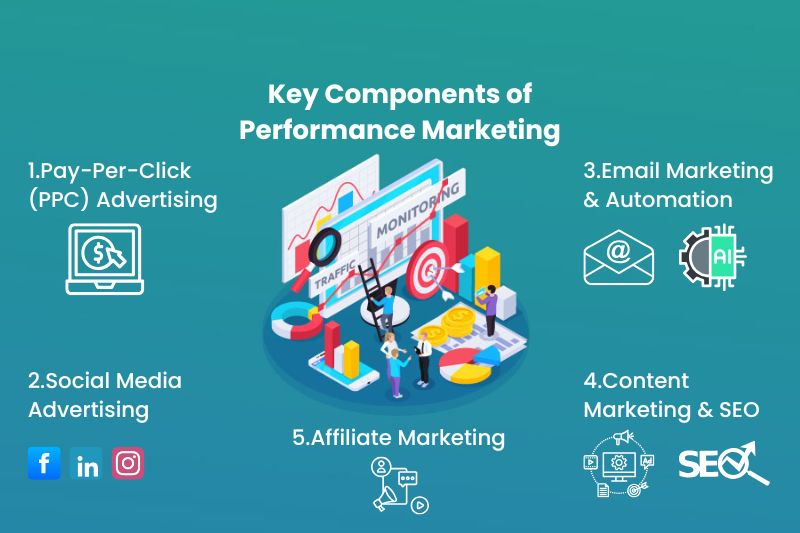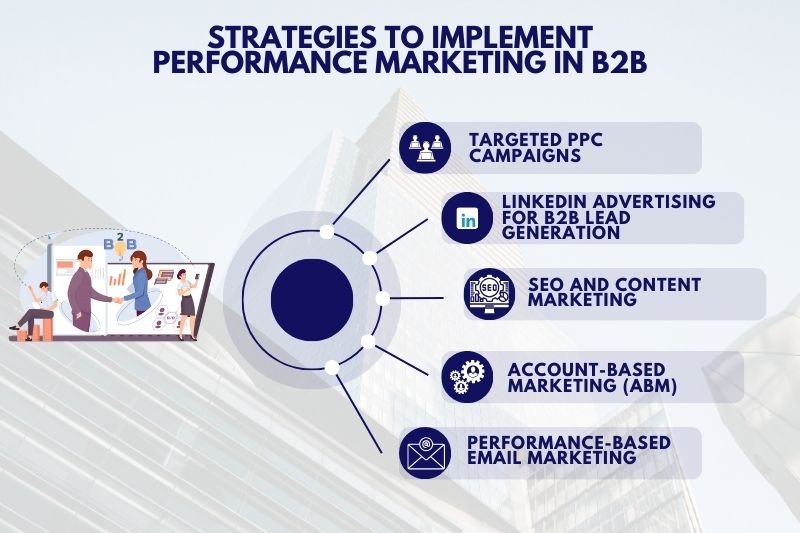In the fast-paced world of B2B marketing, businesses are constantly looking for ways to optimize their marketing spend while ensuring measurable outcomes. Performance marketing has emerged as a powerful strategy, enabling businesses to pay only for actual results, such as leads, clicks, and conversions. Unlike traditional marketing methods, performance marketing ensures a higher return on investment (ROI), making it a preferred choice for businesses seeking data-driven growth.
For companies looking to scale their operations efficiently, partnering with the best performance marketing agencies can be a game-changer. These agencies specialize in creating targeted campaigns, leveraging data analytics, and optimizing marketing spend to deliver high-quality leads.
In this blog, we will explore the significance of performance marketing services in the B2B sector, key strategies, and how businesses can maximize their returns through this approach.
What is Performance Marketing?
Performance marketing is a digital advertising strategy where businesses only pay when a specific action is completed, such as a website visit, form submission, or sale. Unlike traditional advertising that requires upfront investment without guaranteed results, performance marketing ensures cost-effectiveness and accountability.

Key Components of Performance Marketing
- Pay-Per-Click (PPC) Advertising – Running paid search ads on Google, Bing, and other platforms to drive targeted traffic.
- Social Media Advertising – Running targeted ads on LinkedIn, Facebook, and Instagram to generate high-quality B2B leads.
- Email Marketing & Automation – Nurturing prospects through automated email sequences for higher engagement and conversions.
- Content Marketing & SEO – Creating valuable content optimized for search engines to attract and convert leads organically.
- Affiliate Marketing – Partnering with industry influencers and other businesses to promote products/services on a commission basis.
Benefits of Performance Marketing for B2B Businesses
1. Cost Efficiency
B2B businesses operate within strict budgets, making performance marketing a cost-effective strategy. With performance marketing services, businesses only pay for measurable actions rather than mere ad placements, ensuring maximum ROI.
2. Data-Driven Decision Making
Performance marketing allows businesses to track key metrics such as conversion rates, cost per lead (CPL), and customer acquisition cost (CAC). These insights help marketers optimize campaigns in real-time for better results.
3. High-Quality Lead Generation
By leveraging targeted advertising, B2B businesses can attract the right audience, ensuring higher lead quality and improved sales conversions.
4. Scalability
Performance marketing campaigns can be scaled easily by increasing ad spend on high-performing channels, ensuring sustained business growth.
5. Brand Visibility and Awareness
Even though B2B marketing focuses on lead generation, performance marketing also enhances brand visibility. Appearing on search engines and social media builds trust and credibility.

Strategies to Implement Performance Marketing in B2B
1. Targeted PPC Campaigns
Running PPC ads on platforms like Google Ads and LinkedIn Ads ensures that businesses reach decision-makers actively searching for solutions.
- Use intent-based keywords related to your industry.
- Optimize ad copies with compelling CTAs.
- Run A/B tests to refine ad performance.
2. LinkedIn Advertising for B2B Lead Generation
LinkedIn is a powerful platform for B2B marketing as it allows businesses to target professionals based on industry, job title, and company size.
- Use Sponsored Content and InMail campaigns.
- Create value-driven content that educates and engages.
- Leverage retargeting to nurture potential leads.
3. SEO and Content Marketing
Investing in SEO helps B2B businesses attract organic traffic without continuous ad spend.
- Optimize landing pages with industry-specific keywords.
- Publish informative blogs, case studies, and whitepapers.
- Focus on high-intent search queries to drive relevant traffic.
4. Account-Based Marketing (ABM)
ABM is a highly personalized performance marketing strategy that focuses on targeting high-value B2B accounts.
- Identify key decision-makers in target companies.
- Personalize email marketing and ad campaigns.
- Use analytics to track engagement and refine strategies.
5. Performance-Based Email Marketing
Email marketing remains an effective tool for B2B engagement when done right.
- Use personalized subject lines to increase open rates.
- Segment email lists based on user behavior.
- Automate follow-ups to nurture leads through the sales funnel.
Choosing the Best Performance Marketing Agencies for B2B
To maximize results, partnering with experienced performance marketing services providers is essential. Here are key factors to consider:
- Industry Experience: Agencies with B2B expertise understand customer pain points better.
- Proven Track Record: Look for case studies and testimonials.
- Data-Driven Approach: The agency should leverage analytics for optimization.
- Transparency: Clear reporting and performance tracking ensure accountability.
- Multi-Channel Expertise: The agency should specialize in PPC, SEO, social media, and email marketing.
Conclusion
Performance marketing has transformed how B2B businesses acquire leads and generate revenue. By leveraging data-driven campaigns, optimizing marketing spend, and focusing on ROI, businesses can achieve sustainable growth.
Whether you’re a startup or an established enterprise, working with the best performance marketing agencies can help you scale efficiently. With the right performance marketing services, businesses can unlock new opportunities, enhance brand visibility, and drive higher conversions.
Embrace performance marketing today and take your B2B business to the next level!






